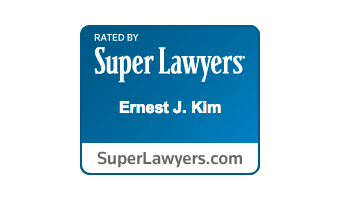Some Helpful Terms to Know for Estate Planning:
Grantor/Settlor/Trustor – the person who created the Trust and made the plans, and put their property into it.
Principal – the person who created a Power of Attorney or Advanced Healthcare Directive.
Trust – the legal document/s containing the instructions regarding how the trust’s assets should be managed during the Grantor’s lifetime or after their death. The documents usually include what/where the Trust property is, who the beneficiaries are, who the trustees are, and when and how distributions of property should be made. A Trust is generally used in California as a replacement for a Will. Unlike a Will, a Trust does not need to be probated in court; the Trustee simply follows the Trust instructions to carry out the Grantor/Settlor/Trustor’s wishes in accordance with their wishes as expressed in the Trust document.
Revocable Trust – a type of Trust that can be changed or canceled by it’s Grantor. A Revocable Trust will later become irrevocable, usually upon the death or incapacity of the Grantor.
Irrevocable Trust – a type of Trust that cannot be changed or canceled once it has been set up and assets are put into it. In some situations, a court may order changes to be made to the Trust.
Successor Trustee/Trustee – the person or financial institution in charge of taking care of the Trust assets and carrying out the Trust’s instructions.
Beneficiary– the person/s who are named in the Trust to receive its assets.
Fiduciary Duties – a Trustee of an irrevocable Trust is a fiduciary, which means that they are basically in a position of trust, taking care of other people’s (the beneficiaries’) money. There are many rules for fiduciaries which the law requires a Trustee to follow, including the duty to be loyal to the Trust beneficiaries, to act in the best interests of the Trust, to manage the trust assets competently and prudently (more carefully than managing their own assets), to keep the trust assets safe from loss, etc..
Pour Over Will – a Will that instructs the Decedent’s property be “poured over” into their Trust. A pour over Will only applies to property that was not put into the Trust by the Grantor prior to their death. Wills generally need to be probated with the probate court.
Advanced Healthcare Directive/s – also known as a Healthcare Power of Attorney or “AHCD”; a legal document which contains the principal’s instructions as well as the identities of the chosen parties who can make healthcare decisions on the Principal’s behalf. Because an AHCD is intended to be used in medical emergencies, California law provides that a photocopy of an AHCD has the same effect as an original for most purposes. This is a unique feature of AHCD’s because most other legal documents depend on the existence and presentation of the originals and photocopies do not have the same effect. The AHCD is only effective during a principal’s lifetime and terminates at their death.
Durable Power of Attorney/s for Property Management – also known as a “DPOA”; a legal document which contains the principal’s instructions as well as the identities of the chosen parties who can make financial decisions on the Principal’s behalf. The DPOA is only effective during a principal’s lifetime and terminates at their death.
Certification of Trust – a summarized version of the Trust that contains a description of the Trustee’s powers to act in relation to Trust property, and identifies who the current and successor Trustee/s are or will be, but leaves out confidential information such as the identities of the beneficiaries. This is a legal document that is sufficient to show the existence of the Trust, the Trustee’s identity and the Trustee’s legal authority to conduct financial transactions with trust property, pursuant to California Probate Code. The Certification usually does not include the terms of the trust that the Grantor wants to be kept confidential (such as identities of beneficiaries) and the Certification is meant to used in lieu of providing the original Trust to banks, realtors, etc. when conducting transactions such as opening and controlling trust owned accounts. Some lenders and banks however, may still require a copy of the actual Trust before they will make loans etc. to the trustee.
Assignment/s of Property -a legal document used to confirm the grantor’s intention that their assets including accounts, businesses, etc. are part of their Trust.
Schedule A – a legal document that is attached to the Trust, listing the specific property such as bank account numbers or other details, that has been put into the Trust.
Community/Marital Property – certain states including California have community property laws which provide that all property acquired during marriage by either spouse, is the property of both spouses as a community and that title in one or the other spouse’s name alone is not what determines ownership rights. Some exceptions to Community Property laws might be inheritances and gifts received from third parties by one person and held in their name alone, not mixed with community or joint assets of the other spouse.
Marital Property Declaration – a legal document that confirms whether a married couple’s property is community property.
Trust Transfer Deed – A deed that transfers real estate into or out of a Trust, which is generally notarized and recorded in the permanent records of the County Recorder’s office.
Funding the Trust – The act of putting property into the Trust, usually by changing the property’s title to reference the Trust and Trustee as its owner.
Minor – A child, or person under the age of eighteen (18) years.
Guardian – The legal title for the person who is appointed to take care of a minor or a minor’s property.
Some Helpful Terms to Know for a Trust Administration:
Grantor/Settlor/Trustor – the person who created the Trust and put their property into it.
Decedent – the person who has died, who owned the estate or trust property.
Trust – the legal document/s containing the plan/instructions for how the trust’s assets should be managed during the Grantor’s lifetime or after their death. The documents usually include what/where the Trust property is, who the beneficiaries are, who the trustees are, and when and how distributions of property should be made. A Trust is generally used in California as a replacement for a Will. Unlike a Will, a Trust does not need to be probated in court; the Trustee simply follows the Trust instructions to carry out the Grantor/Settlor/Trustor’s wishes in accordance with their wishes as expressed in the Trust document.
Revocable Trust – a type of Trust that can be changed or canceled by the grantor. A Revocable Trust will later become irrevocable, usually upon the death or incapacity of the Grantor.
Irrevocable Trust – a type of Trust that cannot be changed or canceled once it has been set up and assets are put into it.
Successor Trustee/Trustee – the person or financial institution in charge of taking care of the Trust assets and carrying out the Trust’s instructions.
Beneficiary– the person/s who are named in the Trust to receive its assets.
Fiduciary Duties – A Trustee of an irrevocable Trust is a fiduciary, which means that they are basically in a position of trust, taking care of other people’s (the beneficiaries’) money. There are many rules for fiduciaries which the law requires a Trustee to follow, including the duty to be loyal to the Trust beneficiaries, to act in the best interests of the Trust, to manage the trust assets competently and prudently (more carefully than managing their own assets), to keep the trust assets safe from loss, etc..
Some Helpful Terms to know for a Probate/Estate Administration:
Decedent – the person who has died, who owned the estate property.
Estate – the property owned by a Decedent. With the owner’s death, that property no longer has an “owner” in charge. The property must now be passed on to the next people who are successors to the Decedent.
Personal Representative / Executor / Administrator – the person the court puts in charge of an estate. Their functions are the same after they have been appointed but the official title is “Executor” if they have been named in a Will, and “Administrator” if there is no Will that named them. The Executor will follow the instructions in the Will, while the Administrator will follow California’s laws regarding intestate (no Will) estates.
Intestacy – when a person dies without a Will; their estate will pass to their heirs at law, in accordance with California’s laws regarding intestacy. The laws of intestacy are a set of laws that try to approximate what the Decedent might have wanted.
Will – a legal document, also known as a “Last Will and Testament,” that contains the Decedent’s instructions for their estate property, such as who should get it and when. A Will must usually be probated and accepted by the probate court.
Probate – the court process by which an Estate is properly managed under court supervision, created by state law to provide an orderly process of protecting estate property and making sure it passes on to the appropriate parties.
Beneficiary/Heir – the person/s who will inherit the estate assets. If they are named in a Will to receive the assets, they are called beneficiaries. If there is no Will, they are called heirs.
Creditor’s Claim – A claim filed in the probate court against the estate, for recovery of money owed by the Decedent. Among the most prevalent types of creditors are credit card companies and hospitals.
Fiduciary Duties – An Executor or Administrator is a fiduciary, which means that they are persons placed in a position of trust, taking care of other people’s (beneficiaries/heirs) money. There are many rules for fiduciaries which the court will require an Executor/Administrator to follow, including the duty to act in the best interests of the estate. These duties are so important that any person seeking to be appointed by the court will be required to sign the “Duties and Liabilities of Personal Representative” form confirming that they have received and understand these requirements before the court will even consider appointing them.
Bond – An executor bond, also known as a probate or fiduciary bond, is a type of surety bond, similar to “insurance” and designed to provide some protection to the estate or its creditors in case the Executor or Administrator breaches their duties or steals estate property. Unlike insurance, if a bond pays out a claim, the bond company will seek to be reimbursed from the individual who was bonded. Even if the parties waive bond, the court may still require it. Bond fees can be paid from the estate.
Statutory Fees – the fees paid to the Executor/Administrator and to their attorney/s, pursuant to the percentages set by California law.





